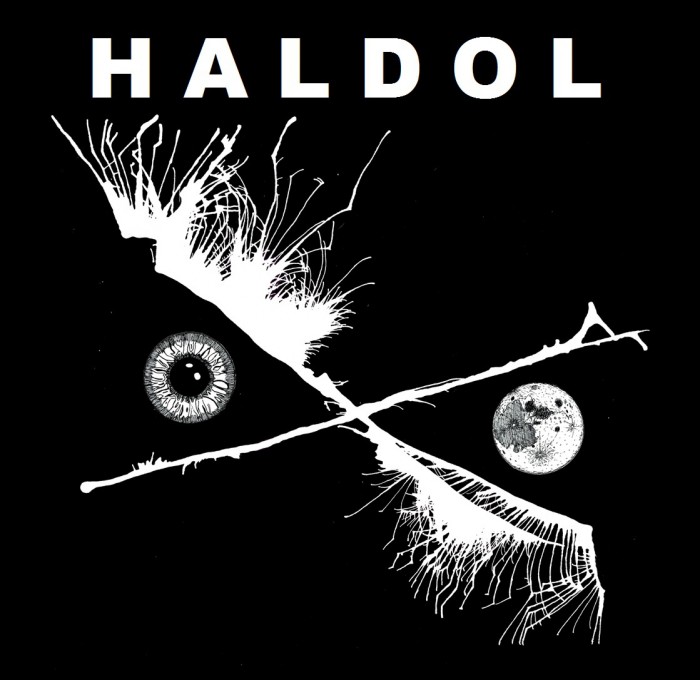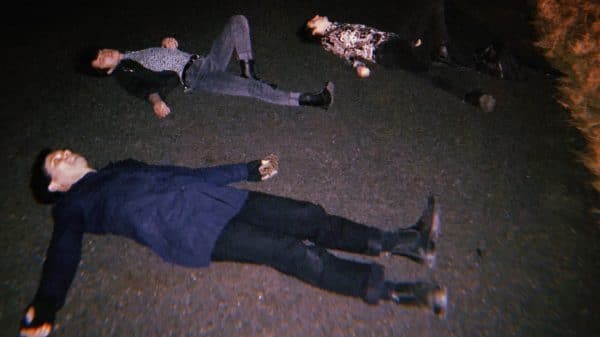Review Written by John Villegas
Post punk goth trio HALDOL come on strong with their most poignant piece to date. Band leader Geoff Smith lays forth a masterfully vehement clamor that sits satiated in it’s own twisted self portrait. Each song is a deranged soundscape that grows more eerie and intriguing as they unfurl, and are chaotic in the best imaginable way.
The opening track, “Hasbara,” is introduced by reverb-drenched feeback that is surely some indication of the noise about to be laid before the listener. As the drums come pounding in, a demented-sounding bass joins and a groove not far from tortured pushes the song with a momentum that will come to be unstoppable for the duration of the record. Enter guitar; noisy without being undefined, its simple melodies carry with the vocals a story all their own. Lyrically, “Hasbara” challenges America’s state-sponsored terror in the Middle East, especially pertaining to Israel. The music and words dance together to form an almost hypnotic feel, and it is at this point it is realized that the lyrics are just as important as the music in these recordings.
While the tempo pulls back on “Insomnia In Dream City,” the ever-driving bass does not let the intensity calm. A swaying wall of guitar engulfs the track until it cuts its way into a discordant sequence almost as subversive as the lines straining “You own my dreams” repetitively.

An ambivalent din of guitar starts “Law of Indifference,” which, as the verse hits, becomes the heaviest song of the record. The unique ethereal quality of the record still persists though different avenues, which pleasantly finds itself handling a slide to bring the song to its apex and eventual completion, pausing only for a moment before marching back in place to “Time Is Not On Our Side.” A musical maelstrom meets Orwellian style orality in a determined stomp. Opening itself up more for some surge of guitar between verses and choruses, it becomes one of the more pronounced songs of the record.
Like a slow descent from some unseen inequity, “Beyond the Pleasure Principle” crawls along, more tormented than any other aforementioned moment on the record, before halfway through it’s journey it explodes into a pronounced slam. The dichotomy of the song itself may be its own Eros opposing Thanatos, or perhaps just another musical constraint to be broken. Either way, it seems as if the inevitable pull of Thanatos leads this album to it’s logical end. Though silence may now reign where sound once inhabited, the memory of it’s stay and the curiosity it induced will remain prevalent in the mind to come, surely prompting repeated listens.








